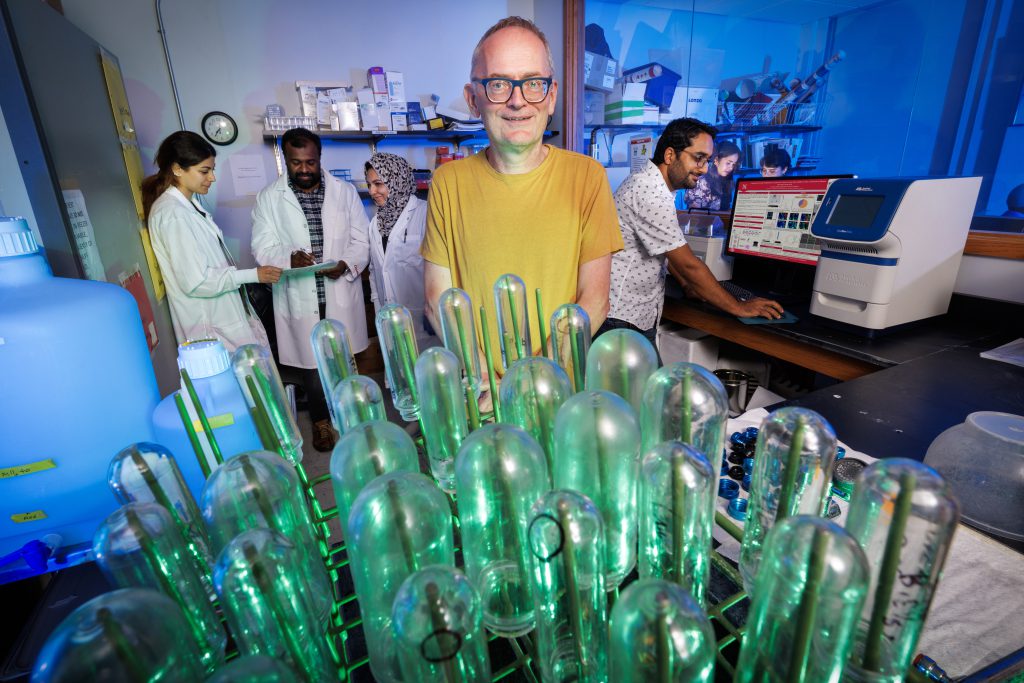Breast milk research aims to improve infant nutrition
Breastfeeding is considered the gold standard for infant nutrition, in part because it’s linked to healthy brain development.
But there are a host of reasons a baby may not receive breast milk. To help more infants benefit from its brain-boosting powers, Janos Zempleni is trying to pinpoint how, biochemically, breast milk confers cognitive benefits – and how to enhance formula to mimic these effects.
Zempleni, Willa Cather Professor of molecular nutrition, believes a key advantage of breast milk is that it contains large quantities of natural particles called exosomes, which formulas lack.

“If you look at the clinical and epidemiological data, there is a lot of evidence suggesting that milk consumption in infants, compared to formula, has beneficial effects on brain function and brain health,” Zempleni said. “One of our ultimate goals is to arrive at a way to develop improved infant formulas, basically exosome-fortified formulas.”
Milk exosomes are important because they facilitate cellular communication affecting organ function. They’re absorbed by bacteria in the gut microbiome. But exactly how exosome-based signals travel from the gut to other parts of the body is unknown.
Zempleni’s team hypothesizes that gut bacteria produce signal-facilitating nanoparticles called outer-membrane vesicles, or OMVs, and cytoplasmic membrane vesicles, or CMVs, to transport exosome-based signals around the body. In pioneering work, Husker researchers are studying the link between milk exosome absorption in the gut and the quality and content of OMV and CMV production.
They’re also exploring the bioavailability of OMVs and CMVs and the final destinations of these nanoparticles. The team’s early results show that OMVs and CMVs transport milk exosome signals to cells in the gut, liver, spleen and kidneys.
Preliminary findings also suggest that depletion of milk exosomes changes bacterial metabolism, which impairs the metabolism of glucose – which fuels cognitive functions like thinking, memory and learning – in the brain.
Zempleni’s collaborators include researchers in the Nebraska Center for the Prevention of Obesity Diseases through Dietary Molecules, which Zempleni directs. Funding from the U.S. Department of Agriculture National Institute of Food and Agriculture supports the project.
+ Additional content for Breast milk research aims to improve infant nutrition
News release: Husker research delves into breast milk consumption, brain development








